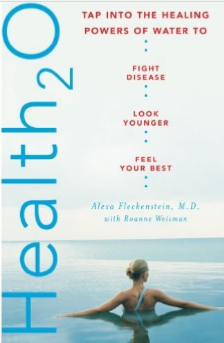Here are some herbs that will help you have stay healthy, especially during winter. My expert is Alexa Fleckenstein, MD, author of Health2 0 and Healthy to 100. Here is what she told me:
“Herbs have been with us throughout evolution. They fit into our ancient physiology like a key into a lock. In prehistoric times, we always ate herbs from the wild. In modern life, a bitter green or strong root might just be what your body needs to find its way back to balance.”
Unlike the new “superbugs” that are resistant to antibiotics, bacteria and viruses do not easily develop resistance against herbs, says Dr. Fleckenstein. That is because a single herb contains hundreds or more of compounds, and many of these compounds work on killing off the germs. Since point mutations in bacteria can only develop one by one, it is highly unlikely that an herb becomes ineffective against a pathogen, because there will always be plenty of compounds to destroy the microbes first.
“The word for these compounds working together is synergy,” she explains. “Synergy is the reason why I recommend whole herbs (tinctures or so-called phytocaps with extracts of the whole plant) instead of ‘taking the best’ from several pants, and making a patented medicine. Patent medicines exist because natural plants can’t be patented, and so firms try to make money by taking single compounds from a plant, combining it with other single compound, thus producing a ‘new’ medicine which allegedly is better. The truth is that in many cases it is not better because you cannot improve on nature.”
So what does Dr. Fleckenstein recommend that you have on hand this winter in case illness strikes?
For colds and flu: echinacea, osha, pau d’arco, olive leaf, elderberry
For simple urinary tract infection: Uva ursi, usnea, cranberry. (Drink lots of warm water, too.)
For indigestion: dandelion, peppermint, milk thistle. (And think of cleaning up your diet!)
For cough: horehound, echinacea, linden flowers
For insomnia: valerian, hops, passionflower
Important caution: Always check with your doctor before taking any herb, since there could be dangerous interactions with other medicines you are taking!
For more information, check out her books (which include not only advice about herbs, but also about cold water, nutrition, movement and life balance). Another great resource is The Green Pharmacy, by ethnobotanist James Duke.




